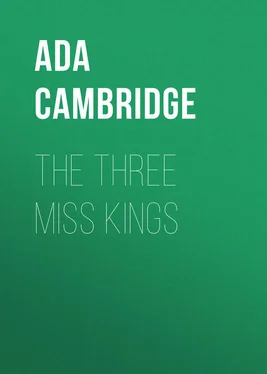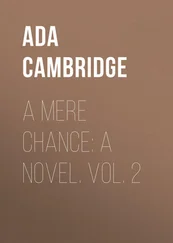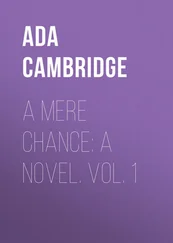Ada Cambridge - The Three Miss Kings
Здесь есть возможность читать онлайн «Ada Cambridge - The Three Miss Kings» — ознакомительный отрывок электронной книги совершенно бесплатно, а после прочтения отрывка купить полную версию. В некоторых случаях можно слушать аудио, скачать через торрент в формате fb2 и присутствует краткое содержание. Жанр: foreign_antique, foreign_prose, на английском языке. Описание произведения, (предисловие) а так же отзывы посетителей доступны на портале библиотеки ЛибКат.
- Название:The Three Miss Kings
- Автор:
- Жанр:
- Год:неизвестен
- ISBN:нет данных
- Рейтинг книги:4 / 5. Голосов: 1
-
Избранное:Добавить в избранное
- Отзывы:
-
Ваша оценка:
- 80
- 1
- 2
- 3
- 4
- 5
The Three Miss Kings: краткое содержание, описание и аннотация
Предлагаем к чтению аннотацию, описание, краткое содержание или предисловие (зависит от того, что написал сам автор книги «The Three Miss Kings»). Если вы не нашли необходимую информацию о книге — напишите в комментариях, мы постараемся отыскать её.
The Three Miss Kings — читать онлайн ознакомительный отрывок
Ниже представлен текст книги, разбитый по страницам. Система сохранения места последней прочитанной страницы, позволяет с удобством читать онлайн бесплатно книгу «The Three Miss Kings», без необходимости каждый раз заново искать на чём Вы остановились. Поставьте закладку, и сможете в любой момент перейти на страницу, на которой закончили чтение.
Интервал:
Закладка:
Mrs. Duff-Scott lifted up a sheet of crabbed manuscript as yellowed by time as Patty's Brussels lace, and said: "This is not quite the thing for a mixed audience, is it?"
"Ah, no, you are right; it is the study of Haydn that a friend of mine asked of me yesterday, and that I propose to read to him to-night," said Herr Wüllner, in that precise English and with that delicate pronunciation with which the cultivated foreigner so often puts us to shame. "It is, you perceive, an arrangement for one violin and a piano only – done by a very distinguished person for a lady who was for a short time my pupil, when I was a young man. You have heard it with the four-stringed instruments at your house; that was bad – bad! Ach! that second violin squeaked like the squeaking of a pig, and it was always in the wrong place. But in good hands it is sublime. This" – and he sighed as he added more sheets to the one she held and was steadily perusing – "this is but a crippled thing, perhaps; the piano, which should have none of it, has it all – and no one can properly translate that piano part – not one in ten thousand. But it is well done. Yes, it is very well done. And I have long been wanting my friend to try it with me."
"And what about the young lady for whom it was written? – which part did she take?"
"The piano – the piano. But then she had a wonderful execution and sympathy – it was truly wonderful for a lady, and she so young. Women play much better now, as a rule, but I never hear one who is an amateur play as she did. And so quick – so quick! It was an inspiration with her. Yes, this was written on purpose for that lady – I have had it ever since – it has never been published. The manuscript is in her own hand. She wrote out much of her music in her own hand. It was many, many years ago, and I was a young man then. We were fellow-pupils before I became her master, and she was my pupil only for a few weeks. It was a farce – a farce. She did not play the violin, but in everything else she was better than I. Ah, she was a great genius, that young lady. She was a great loss to the world of art."
"Did she die, Herr Wüllner?"
"She eloped," he said softly, "she ran away with a scapegrace. And the ship she sailed in was lost at sea."
"Dear me! How very sad. Well, you must make your friend try it over, and, if you manage it all right, bring him with you to my house on Monday evening and let me hear it."
"That shall give me great pleasure," said the old man, bowing low.
"You have your violin with you, I suppose?" she asked.
"It is in the hall, under my cloak. I do not bring it into this room," he replied.
"Why not?" she persisted. "Go and fetch it, Herr Wüllner, and let Mrs. Aarons hear you play it" – suddenly bethinking herself of her hostess and smiling upon that lady – "if she has never had that treat before."
Mrs. Aarons was eager to hear the violin, and Herr Wüllner went himself, though reluctantly, to fetch his treasure from the old case that he had hidden away below. When he had tuned up his strings a little, and had tucked the instrument lovingly under his chin, he looked at Mrs. Duff-Scott and said softly, "What?"
"Oh," cried Mrs. Aarons, striking in, "play that – you know – what you were talking of just now – what Mrs. Duff-Scott wanted so much to hear. I want to hear it too."
"Impossible – impossible," he said quickly, almost with a shudder. "It has a piano part, and there is no one here to take that."
Then Paul Brion broke in, conscious that he was running heavy risks of all sorts, but resolved to seize his chance.
"I think there is someone who could play it," he said to Mrs. Aarons, speaking with elaborate distinctness. "The Miss Kings – one of them, at any rate – "
"Nonsense," interrupted Mrs. Aarons, sharply, but under her breath. "Not at all likely." She was annoyed by the suggestion, and wished to treat it as if unheard (it was unreasonable, on the face of it, of course); but Mrs. Duff-Scott caught at it in her direct way. "Who are they? Which are the Miss Kings?" she asked of Paul, putting up her eye-glass to see what manner of man had taken upon himself to interfere.
"My dear lady," sighed Herr Wüllner, dropping his bow dejectedly, "it is out of the question, absolutely. It is not normal music at its best – and I have it only in manuscript. It is impossible that any lady can attempt it."
"She will not attempt it if she cannot do it, Herr Wüllner," said Paul. "But you might ask her."
Mrs. Duff-Scott had followed the direction of his eyes, and her attention was violently arrested by the figures of the three girls sitting together, who were so remarkably unlike the majority of Mrs. Aarons's guests. She took note of all their superficial peculiarities in a moment, and the conviction that the lace and the pearls were real flashed across her like an inspiration. "Is it the young lady with the bright eyes?" she inquired. "What a charming face! Yes, Herr Wüllner, we will ask her. Introduce her to me, Mrs. Aarons, will you?"
She rose as she spoke and sailed towards Patty, Mrs. Aarons following; and Paul Brion held his breath while he waited to see how his reckless enterprise would turn out. In a few minutes Patty came towards the piano, with her head up and her face flushed, looking a little defiant, but as self-possessed as the great lady who convoyed her across the room. The events of the evening had roused her spirit, and strung up her nerves like Herr Wüllner's fiddle-strings, and she, too, was in a daring and audacious mood.
"This is it," said the old musician, looking at her critically as he gave a sheet of manuscript into her hand. It was a wonderful chance, of course, but Patty had seen the facsimile of that manuscript many times before, and had played from it. It is true she had never played with the violin accompaniment – had never so much as seen a violin until she came to Melbourne; but her mother had contrived to make her understand how the more delicate and sensitive instrument ought to be deferred to in the execution of the piano part, and what the whole should sound like, by singing the missing air in her flexible trilling voice; and just now she was in that peculiar mood of exaltation that she felt inspired to dare anything and assured that she should succeed. "You will not be able to read it?" Herr Wüllner suggested persuasively, drawing hope from her momentary silence.
"Oh, yes," she said, looking up bravely: "I think so. You will stop me, please, if I do not play it right." And she seated herself at the piano with a quiet air of knowing what she was doing that confounded the two ladies who were watching her and deeply interested Mrs. Duff-Scott. Paul Brion's heart was beating high with anticipated triumph. Herr Wüllner's heart, on the contrary, sank with a mild despair.
"Well, we will have a few bars," he sighed. "And pray, my dear young lady, don't bang the piano – I mean don't play over me. And try to keep time. But you will never do it – with the best intentions, my dear, you will never be able to read it from such a manuscript as that."
Patty looked up at him with a sort of radiant calmness, and said gently, "Go on. You see you have an opening movement to yourself."
Bewildered, the old man dropped his bow upon the strings, and set forth on his hopeless task. And at exactly the right moment the piano glided in, so lightly, so tenderly, and yet with such admirable precision and delicate clearness, that it justified, for once, its trespass upon ground that belonged to more aerial instruments. It was just what Paul Brion had counted on – though Paul Brion had not the least idea what a wild chance had brought about the fulfilment of his expectations. Patty was able to display her chief accomplishment to the very best advantage, and the sisters were thereby promoted to honour. The cold shade of neglect and obscurity was to chill them no more from this happy moment. It was a much greater triumph than Patty herself had any idea of, or than anybody had had the least reason to expect. She knew that piles of music, all in this self-same handwriting (she had never seen any other and supposed that all manuscript music was alike), were stowed away in the old bureau at home, and in the ottoman which she had constructed out of a packing-case, and that long familiarity had made it as easy to her to read as print; but Herr Wüllner was not in a position to make the faintest guess at such a circumstance. When Elizabeth moved her seat nearer to the piano, as if to support her sister, though he was close enough to see it, he did not recognise in the miniature round her neck the face of that young lady of genius who eloped with a scapegrace, and was supposed to have been drowned at sea with her husband. And yet it was that lady's face. Such wonderful coincidences are continually happening in our small world. It was not more wonderful than that Herr Wüllner, Mrs. Duff-Scott, Paul Brion, and Patty King should have been gathered together round one piano, and that piano Mrs. Aarons's.
Читать дальшеИнтервал:
Закладка:
Похожие книги на «The Three Miss Kings»
Представляем Вашему вниманию похожие книги на «The Three Miss Kings» списком для выбора. Мы отобрали схожую по названию и смыслу литературу в надежде предоставить читателям больше вариантов отыскать новые, интересные, ещё непрочитанные произведения.
Обсуждение, отзывы о книге «The Three Miss Kings» и просто собственные мнения читателей. Оставьте ваши комментарии, напишите, что Вы думаете о произведении, его смысле или главных героях. Укажите что конкретно понравилось, а что нет, и почему Вы так считаете.












